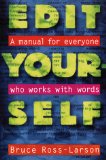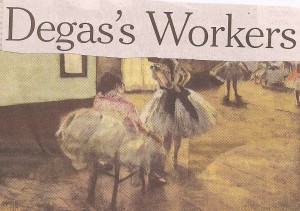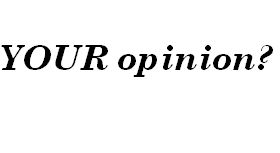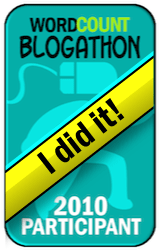When do I need quotation marks?
When should you use quotation marks? You probably know that you should use them around quotations or around the titles of some artistic works. (Books are an exception to the artistic works rule, except in AP style.) But other cases are open to debate.
I find that non-professional writers sometimes use quotation marks for emphasis, instead of their intended purposes. I don’t like that. Nor do most professional writers.
Garner’s Modern American Usage lists three times, in addition to when you’re identifying quotations or titles of artistic works, when you should use quotation marks:
- when you’re referring to a word as a word, <the word “that”>, unless you’re using italics for that purpose
- when you mean so-called-but-not-really <if he’s a “champion,” he certainly doesn’t act like one>
- when you’re creating a new word for something—and then only on its first appearance <I’d call him a “mirb,” by which I mean…>
Some sources disagree with Garner and me on avoiding the use of quotation marks for emphasis, but urge discretion. Here’s what Amy Einsohn says in The Copyeditor’s Handbook: A Guide for Book Publishing and Corporate Communications:
Quotation marks may be used for emphasis or irony, but copyeditors should curb authors who overuse this device.
I’m okay with using quotation marks for irony. I believe that’s what Garner aims at in his so-called-but-not-really case. But I prefer to avoid using them for emphasis. In fact, I almost deleted Einsohn’s quote from this post because I dislike them so much.
You can make your own rules on this issue, but I suggest that create a style sheet to help you apply your rules consistently.
What do YOU think about quotation marks?
If you have strong feelings about the usage of quotation marks, please share. If you suggest a different set of rules, it’d be great if you could cite a source for your recommendation.







